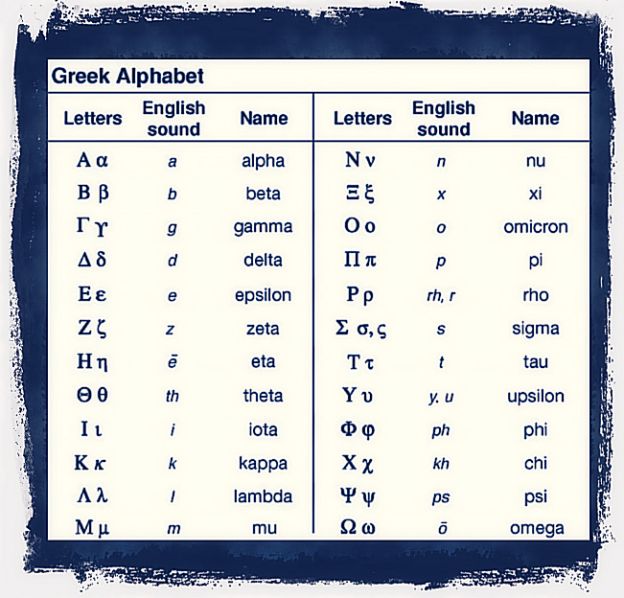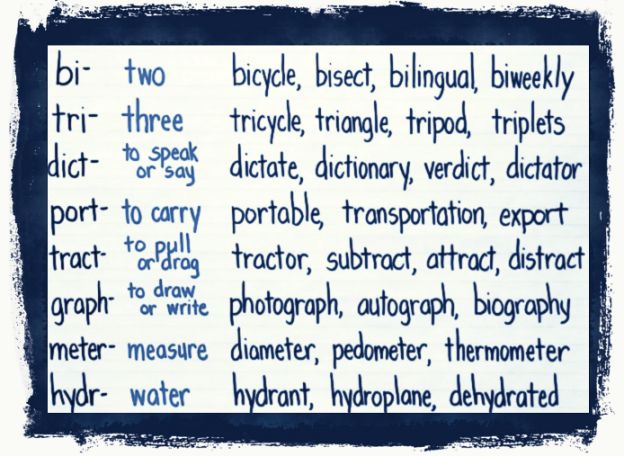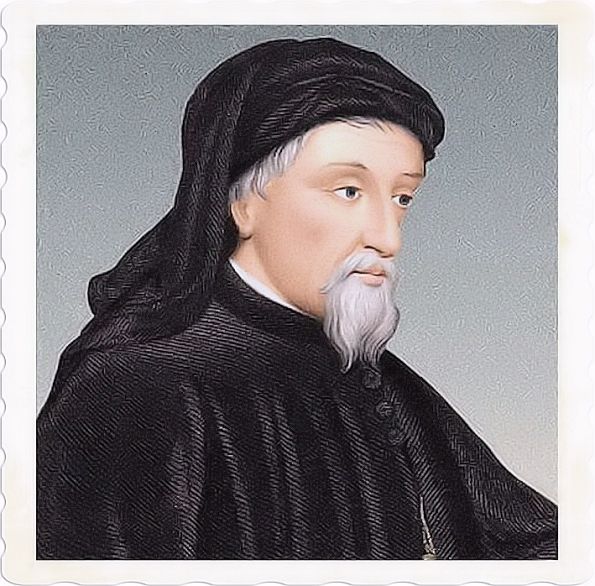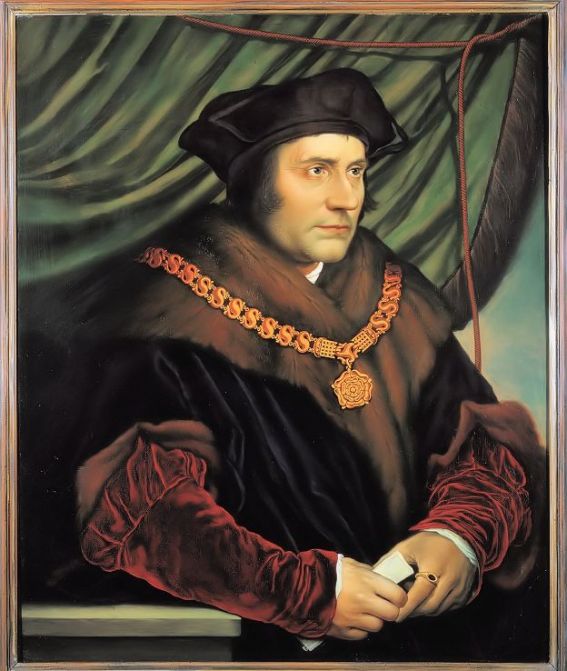
English, Greek and Latin, an article that explains how much the English language has been influenced and modified by the ancient Greek and Latin languages of the classical world.
Why is it that so many of our technical terms derive from Greek? Primarily, it is because Athens once led the world in art, science, and philosophy and because the Greek language is peculiarly well adapted to supply the need in English for precise and unambiguous terms with no inherited penumbra of meaning. Greek has, too, an unusual capacity for forming compounds by means of an extensive and regular system of suffixes. Moreover, there are historical causes. Athens reached the height of her power in the time of Pericles (c. 495-429 B.C.). Within the century following, Socrates, Plato, and Aristotle lived and taught. After the decline of Athens much Greek learning was preserved in Latin and much, too, in Arabic, especially scientific treatises on medicine, astronomy, and mathematics.
This Arabic learning eventually found its way into Western Europe by circuitous paths through Sicily and Spain, but much was lost until the year 1453, when the capture of Byzantium or Constantinople by the Ottoman Turks dispersed Greek-speaking clerks, who fled to the west. Eminent English scholars, like the Venerable Bede of Jarrow in the eighth century and John of Salisbury in the twelfth, certainly had some knowledge of Greek. They knew some Greek words, but it is doubtful whether they could read Greek with ease. Learning they regarded above all as the instrument of the good life, and, like most other scholars in the Middle Ages, they found in Latin all that they sought.
But in any case the Greek language has had an important influence on the English language. To start with we can quote only a few words derived from Greek such as “Antique, idol, dialogue, geography, grammar, architect, economy, encyclopaedia, telephone and microscope. To this list, we could also add thousands more words. Greek is one of the oldest Indo-European languages and is usually divided into Ancient Greek (often thought of as a dead language) and Modern Greek. Modern Greek is derived from Koine, a common dialect of Ancient Greek that was understood throughout the Greek-speaking world at that time. In the 19th century, Modern Greek became the official language of the Kingdom of Greece.

According to Peter T. Daniels, the Ancient Greeks were the first to use a “true” alphabet, that is, one representing both vowels and consonants. Indeed, the word “alphabet” is formed of the first two letters of the Greek alphabet, “alpha” and “beta”. The contribution of Greek to the English vocabulary can be quantified in two ways, type and token frequencies: type frequency is the proportion of distinct words; token frequency is the proportion of words in actual texts. Since most words of Greek origin are specialized technical and scientific coinages, the type frequency is considerably higher than the token frequency. And the type frequency in a large word list will be larger than that in a small word list. In a typical English dictionary of 80,000 words, which corresponds very roughly to the vocabulary of an educated English speaker, about 5% of the words are borrowed from Greek. These include technical and scientific terms but also more common words like those above. Words that starts with ‘ph-‘ are usually of Greek origin, for example: philosophy, physical, photo, phrase, philanthropy. Greek mythology has been very influential in Western culture, particularly its art and literature. Of the 500 most common words in English, 18 are of Greek origin: place, problem, school , system , program , idea , story , base , center, period, history, type , music, political, policy, paper , phone, economic.
We can also find some common expressions in English coming from these ancient myths and beliefs. To have an “Achilles heel” means to have a weakness or vulnerable point. Achilles was a Greek hero and central character in Homer’s epic poem, The Iliad. He was only vulnerable at his heel. The “Midas touch” is another common expression deriving from Greek mythology. Describing a near-magical ability to succeed at anything one undertakes, the expression originates from a story of King Midas, who is remembered for his ability to turn everything he touched into gold. An idiom which has its roots in Greek antiquity is “crocodile tears”. The phrase might come from the popular ancient belief that crocodiles weep while eating their victims. In fact, crocodiles do lubricate their eyes via their tear ducts, usually when their eyes start to dry out after being out of the water for a long time. Nevertheless, the behaviour is also thought to occur when crocodiles feed. It’s used in English to describe expressions of sorrow that are insincere.
Chaucer was content to derive his knowledge of Greek philosophy almost entirely from Boethius. Petrarch, whom he met in Italy, wept over a manuscript of Homer which he could not read. Boccaccio tried to learn Greek, we are told, without success. In thirteenth-century England, however, there had been two notable exceptions: Robert Grosseteste, the great Bishop of Lincoln, and his yet greater pupil, Roger Bacon, the Doctor Mirabilis. By more than two centuries these men anticipated the revival of Greek learning in England at the hands of William Grocyn and Thomas Linacre. Grocyn was a priest and he taught John Colet, afterwards Dean of St Paul’s, who startled his hearers by expounding St Paul’s Epistles as living human documents. Linacre, translator of Galen, was a physician and he taught Sir Thomas More Greek at Oxford.
Under More’s hospitable roof at Chelsea, Erasmus of Rotterdam was always sure of finding a warm welcome, and that cosmopolitan scholar was later induced to serve from 1511 to 1514 as Lady Margaret Reader in Greek at Cambridge. Ever since the days of Linacre and Erasmus, Greek has been taught continuously at Oxford and Cambridge. Other countries too have been no less devoted to classical scholarship, especially Scandinavia and Holland. But Greek scholarship left a far deeper mark on English because Englishmen had already acquired the speech-forming habit of borrowing words freely from other tongues. They were quite prepared to borrow Latin words through French, or Latin words direct; Greek words through Latin by way of French, Greek words through Latin, or Greek words direct. Latin and Greek words found their way into English because they were needed. Further, the boundaries of human knowledge were being rapidly extended and this new knowledge was disseminated for the first time by means of printed books.

The names of the seven liberal arts of the medieval trivium and quadrivium had all been Greek-derived words: grammar, logic, and rhetoric; arithmetic, geometry, astronomy, and music. The word grammar, by the way, is interesting. Like beautiful and bearable, it is a hybrid. It is made up of elements from different languages. It comes by way of Old French from Latin ars grammatica, which is itself a translation of Greek grammatike techne, “the art pertaining to literature, letters, or , written marks”. To the Greek root gram(m)- is added the Latin suffix -arius in this particular case, although the usual Latin-derived suffixes are -ous, -an, and -al, as in analogous, amphibian, and orchestral.
In his Treatise on the Astrolabe Chaucer used and explained Greek terms for the benefit of “little Lewis”, his “dear son”, and he made frequent references to both astronomy and astrology elsewhere in his works, which were copied and studied assiduously by his admirers throughout the fifteenth century. The way was thus well prepared for the importation of words like drama, first recorded in 1515, and of terms relating to the drama: theatre and amphitheatre; comedy and tragedy; catastrophe, climax, episode, scene, dialogue, prologue, and epilogue. The capacity for forming compound words may be illustrated from the Greek verb poieo “I make”. From this verbal form derives poiema “something made or created, an object of making”, poieteos “the process of making”, poieteos verbal adjective “to be made”, poietikos “able or disposed to make”, and poietes “maker”. The poet, then, the maker of Middle and Tudor English, is, first and foremost, the creator, who “bodies forth the forms of things unknown”.
Poesy, now somewhat archaic, was the earlier form in Tudor English; poem is unrecorded before the middle of the sixteenth century. From poetic was formed poetical by the addition of an extra Latin suffix in -al. As for poetry itself, it was first used by Chaucer in the form poetrie from late Latin poetria. Another illustration is afforded by the compounds and derivatives in Modern English of Greek gignosko “I get to know” and related gnosis “knowledge, wisdom”. Gnosis is applied in English to that higher, spiritual wisdom claimed by the gnostics.
The agnostics, on the other hand, claim that nothing is or can be known about God or a future life, and that knowledge is limited to material phenomena. When a physician identifies a disease from its symptoms he makes a diagnosis, and when he expresses his expert opinion on its probable future course he offers a prognosis. Anyone may venture to prognosticate, foretell or predict what may happen in certain circumstances. A man’s cast of countenance is his physiognomy, but, more strictly, this implies “the art of getting to know a man’s phusis or nature” from his face. The gnomon of a sundial is the indicator by which we “get to know” the hour marked.

Scores of Greek words have made themselves so much at home that it is only by an effort that we recall their earlier significations. An acrobat is, etymologically, a “point-walker, one who walks on tiptoe”; an athlete is a “contestant for an athlon or prize”; and the protagonist is the “first actor” of three, the deuteragonist and the tritagonist being the second and third. An asylum is any “place exempt from sule”, or the right of seizure, and so refuge or sanctuary”; an atom is something “uncut or indivisible” and has come to mean an “individual person” in Modern Greek; a catastrophe is a “down turn”, a character an “engraving”, a crisis a selection or judgement, a comma something “struck or cut”, especially the “stamp or impression on a coin”. Panic is short for “panic fear”, that is, “groundless fear”, such sudden terror being inflicted upon us by the god Pan. A cycle is merely a “circle” and an encyclopedia is a “child-training or education in a circle”. If you examine the prospectus of subjects taught in any European or American university, technical college, or technological institute, you will find that Greek-derived names preponderate.
The Nomenclature of Disease, that important publication which is subject to constant revision by a special committee appointed by the Royal College of Physicians of London, is full of Greek terms, many of which would doubtless have appeared bewildering to Galen and Hippocrates. The present-day forms may not be unexceptionable on etymological grounds, but they serve their turn. They are useful because they point definitely to one thing or referent and because they are immediately intelligible to specialists throughout the world. In modern medical usage certain Greek suffixes, like -itis- and -osis, have acquired a new “slant” in order to meet new needs. The feminine adjectival suffix -itis- in Greek corresponded to the masculine -ites- which has become -ite in English in words like Semite, Darwinite, and selenite “dweller in the moon”. This -itis- form was frequently used with the feminine substantive nosos “disease” expressed or understood: arthritis (nosos) “disease of the joints”, nephritis (nosos) “disease of the kidneys”.
Later this suffix was used to denote exclusively those diseases which are characterized by inflammatory condition: appendicitis “inflammation of the vermiform appendix”; bronchitis “of the mucous membrane of the bronchial tubes”; conjunctivitis “of the inner surface of the eyelids”; endocarditis “of the membranous lining of the heart”; gingivitis “of the gums”; peritonitis “of the serous membrane of the abdomen”; phlebitis “of the veins”; poliomyelitis “of the grey marrow of the spinal chord”, popularly known as infantile paralysis. Facetiously -itis is now fast becoming a living suffix implying “feverish excitement” and it may be attached to any word; pageantitis (Rose Macaulay), motoritis, radioitis, examinationitis. The feminine substantival suffix -osis meant normal “state, condition or process”, as in symbiosis “a living together (of two dissimilar organisms for purposes of nutrition)” and metamorph-osis, of which Latin trans-forma-tion is an exact transla-tion, part for part. In medical terminology, however, -osis denotes “disease”, as in halitosis “foul breath”, neurosis “functional disorder of the nerves”, psychosis “mental anxiety”, and tuberculosis “disease caused by the tubercle bacillus”, this last being a hybrid since the first component comes from Latin tuberculum, diminutive of tuber “swelling”.
The electricians now speak of dynatrons and kenotrons; phanotrons, magnetrons, and thyratrons. In the hitherto “indivisible” atom the nuclear physicists now discover electrons, neutrons, and protons, and they proceed to build cyclotrons and synchrotrons. The last four letters of electron (from electro- or electr-ic+the neuter suffix -on) have thus become a new noun-forming suffix. I once heard an unkind critic allude disparagingly to these neologisms as dog-Greek. To a lover of the language of Sophocles and Plato these recent coinages may indeed appear to be Greek debased. More appropriately, perhaps, they might be termed lion-Greek or chameleon-Greek. They are neo-Hellenic in the genuine Renaissance tradition.

The classical Renaissance of the sixteenth century led to a yet more wholesale importation of Latin words. For a time “the whole Latin vocabulary became potentially English”. Whereas some words, like consolation, gravity, infernal, infidel, position, and solid, might have come into the language in those forms from either French or Latin, many expressions, like abacus, abecedarium, arbitrator, ergo, executor, explicit, finis, gratis, imprimis, incipit, index, item, major and minor, memento, memorandum, mittimus, neuter, pauper, persecutor, proviso, simile, and videlicet, were taken straight from Latin without change. Zeal for classical learning led men to reshape French-derived words on Latin models.
Good Chaucerian words like descryve, parfit, and verdit were transformed into describe, perfect, and verdict. Peynture was changed to picture, avys to advice, and aventure to adventure. The biblical idiom to draw a bow at a venture preserves the older form, the un-stressed a- in at aventure “from chance” having been mistaken for an indefinite article. More obscurely, the older form is likewise preserved in the verb saunter from French s’ aventurer “to hazard oneself, venture, take one’s chance”. Dette and doute were written debt and doubt, and vittles was written victuals, but no one took any notice of these spelling changes in speaking. Some such remodelling was likewise undertaken in French when, for example, captive was substituted for caitiff. Both words are now used in English, but with different meanings.
Some of the new spellings were based on misconceptions. Middle English iland, for example, from Old English ieg “isle+land”, was erroneously associated with its Romance synonym isle from Latin insula. So iland was written and printed island, though no one ever attempted to pronounce the inserted sibilant. Sissors from Old French cisoires and sithe from Old English side or sigoe both came to be wrongly connected with the Latin scindere, scidi “to cleave” (as in Modern English “rescind”) and they were therefore respelt scissors and scythe. Johnson rightly preferred sithe, but his high authority was here unavailing. Coud, past tense of can, was written could on supposed analogy with should and would.
You may have noticed that Robert Bridges deliberately restored coud in The Testament of Beauty, but no subsequent writers of repute have ventured to follow his example. Latin-derived ancor was blurred with Greek anchorite “one who draws up or back (from the world)” and so was written anchor. To their credit the zoologists retain the form ancoral when speaking of the anchor-like feet of parasitic crustacea. Antony, from the old Roman name Antonius, was somehow linked up with the Greek word anthos “flower” which we find in anthology and polyanthus and so it was often written Anthony. Chaucerian avantage and ava(u)nce, wrongly thought to contain the Latin prefix ad-, were changed to advantage and advance. French avant “before”, from Latin ab+ante, actually lies behind both these words.

Love of Latin caused men to borrow words once more which had already come into English in a modified form by way of French. These resulting word-pairs or doublets seldom remain synonymous. In meaning, as in form, they are no longer associated in the mind of the speaker, however fascinating their histories may be to the student of words: assoil – absolve, benison – benediction, blame – blaspheme, chance – cadence, chapter – capital, count – compute, dainty – dignity, fealty -fidelity, frail – fragile, garner – granary, poor – pauper, purvey – provide, ray – radius, reason – ration (ratio), respite – respect, sever -separate, spice – species, strait – strict, sure – secure, treason -tradition.
The Latin words for “lawful” and “kingly” were imported three times in the forms leal – loyal – legal and real – royal – regal from earlier and later Old French and again from Latin direct. Leal is still heard in the Scottish and Northern English phrases leal and feal “and leal and true”; heaven is “the land of the leal”. Loyal, which now means “faithful in allegiance”, was still used in the sense of “legal, legitimate” by Shakespeare: “Loyall and naturall boy” (King Lear II. i. 86). Real is now obsolete, but Chaucer described Jason in The Legend of Good Women as “in appearance as royal as a lion” of his lok as real as a leoun. Elsewhere he used both royal and regal (the justice regal rendering regia censura of Boethius). He could choose which-ever form suited him best for rhythm or rhyme or assonance.
Latin and English became more closely blended than ever before and distinctive suffixes like -ment and -ation were transplanted into native words. A solitary instance may indeed be found in Wyclif’s one-ment “the being (at) one (of man with God)” anticipating later atonement. In the sixteenth century we first encounter acknowledgement, amazement, betterment, and merriment. Somewhat later we find recorded endearment (1612), enlightenment (1669), bereavement (1731), fulfilment (1775), and bewilderment (1820). Native compounds in -ation first appeared in the eighteenth century: flirtation (1718), starvation (1778), and botheration (1801).
As early as the fourteenth century -able had been treated as a living formative because it was associated with the independent and unrelated adjective able (Latin habilis “easy to be held or handled, handy”, verbal adjective formed from habere “to hold, have”; French habile , clever). Chaucer used unknowable, Wyclif understandable, and Shakespeare answerable, unmatchable, and laughable. Laughable was later banned by Victorian precisionists on the ground that it was grammatically a malformation for more logical laugh-at-able, but they had forgotten their Merchant of Venice: “Though Nestor swear the jest be laughable”. Johnson characteristically referred to his biographer Boswell as “a very clubbable man”. Many Latin verbs were modified in a way peculiar to English among the languages of Western Europe, for they were often formed not from the present stem, as in French, Spanish, and Italian, but from the past participle passive.

Such expressions as “a church dedicate (Latin ecclesia dedicata) to St Augustine”, “the devil incarnate”, and “frustrate hope” seemed, to an English ear, to postulate corresponding infinitives “to dedicate”, “to incarnate”, and “to frustrate”. Past participles without -d were already familiar in cast, put, and set, as, indeed, they are still, however tempted we may feel to say broadcasted instead of broadcast! Thus new verbs were formed with infinitives unknown to Latin: not only dedicate, incarnate, and frustrate, but also accumulate, alienate, associate, create, exaggerate, hibernate, liberate, radiate, translate, ventilate, and many others. Such verbs have even been formed from Greek – dehydrate; from French – decapitate, facilitate, and tolerate; and even from the native adjective tidy, which has produced titivate after the pattern of cultivate.
Some Latin words retained their original meanings in Elizabethan English and we should be ever on the look-out for this possibility in our reading. Enormous meant “out of the norm, abnormal”, extravagant “wandering beyond (the path)”, and extraordinary “out of the regular course or order”. Aggravate meant “to add weight to, weigh down”, and ponder literally “to weigh”. Premises were “things mentioned previously”, and item “also” was still an accountant’s term introducing all the sections of a bill except the first, which generally opened with imprimis. To transpire was “to breathe through or across”, a compound unknown to Latin. It soon acquired the useful and delicate meaning “to become known by degrees, to emerge from secrecy into knowledge” and, more recently, it has come to be used loosely in the sense “to happen”.
As a result of the revival of classical learning English writers had a superabundant wealth of words at their disposal and the less prudent and critical ones were led to indulge in exuberance and excess, in “aureate diction” and “inkhorn terms”. From aureate diction the poetry of the Scottish Chaucerians, King James I, Henryson, Dunbar, Douglas and Lindsay, was seldom free. Chaucer’s English admirer Lydgate was capable (of even greater verbal excesses. In the sixteenth century Sir John Cheke protested against “inkhorn terms” which were the inventions of pedants and which were never heard in the living speech of the market-place.
No less severely did Thomas Wilson, whose Art of Rhetorique (1553) came into Shakespeare’s hands, reprimand those who “affect straunge ynke-horne termes” and who “secke so far for outlandish English that they forget altogether their mothers language. And I dare sweare this”, he added, “if some of their mothers were alive, they were not able to tell what they say: and yet these fine English clerkes will say, they speake in their mother tongue, if a man should charge them for counterfeiting the King’s English… The unlearned or foolish phantasticall, that smelles but of learning (such fellowes as have seen learned men in their daies) wil so Latin their tongues, that the simple can not but wonder at their talke, and think surely they speake by some revelation.”

Shakespeare’s audiences were surely alive to the presentation of the pedantic schoolmaster in Love’s Labour’s Lost, for they had all met Holofernes in real life. Wilson gave salutary counsel which was echoed by wise judges of style in the eighteenth and nineteenth centuries who decried “excessive Latinity” and who rightly taught that the competent craftsman was he who preserved a sense of proportion and who kept the balance between the several main components of the language and, more particularly, between the Latin and the native elements.
From the pages of The Oxford English Dictionary you may, if you will, glean much accurate and entertaining information about the history of the following Latin words, first recorded in English at the dates given: arbiter 1502, genius 1513, pollen 1523, acumen 1531, folio 1533, area 1538, sternutation 1545, circus 1546, axis 1549, vacuum 1550, species 1551, terminus 1555, decorum 1568, ignoramus 1577, omen 1582, radius 1597, stratum, virus 1599, premium 1601, equilibrium 1608, specimen 161o, series 1611, census 1613, arena 1627, apparatus 1628, veto 1629, curriculum 1633, formula 1638, impetus 1641, focus 1644, complex 1652, honorarium 1658, pendulum 1660, maximum, minimum 1663, lens, status 1693, momentum 1699, nucleus 1704, inertia 1713, propaganda 1718, auditorium 1727, ultimatum 1731, in-somnia 1758, prospectus 1777, addendum 1794, habitat 1796, duplex 1817, omnibus 1829, animus 1831, sanatorium 1840, con-sensus 1854, moratorium 1875, referendum 1882, bacillus 1883. This list might be extended considerably.
A complete list would include many technical terms which are not in general use. Even in this short list some words appear which seem to have adequate native synonyms. Is sternutation different from sneezing or insomnia different from sleeplessness? For the latter French has only insomnie and German only Schlaflosigkeit, but English is fortunate, I think, in possessing the equivalents of both. There are occasions when it is useful and valuable to have two terms at command with their differing nuances, however slight. Our language gains thereby in precision and power.
Many Englishmen of the sixteenth century wrote their native tongue with the memory of Latin rhythms and cadences in their heads and many others vacillated between the two languages before embarking on work for publication. Roger Ascham remarked casually that it would have been easier for him to write Toxophilus in Latin. Sir Thomas More actually did write his Utopia in Latin (1516), which was translated into French in his lifetime (1531), but not into English until many years (1551) after his tragic death. Francis Bacon regarded Latin as the one permanent vehicle of learning and he took care to publish his more important treatises in that language.

The Advancement of Learning, it is true, appeared in English, but De Augmentis, its later expanded version, was given to the world (1623) in the language of Cicero. To express oneself in English, averred Edmund Waller the poet, is “to write in sand”. Even William Harvey, who expounded his discovery of the circulation of the blood to the College of Physicians in the year of Shakespeare’s death, thought it best to record the final results of his researches (1628) in Latin.
Text adapted and integrated mainly from Our language by Simeon Potter
If you want to know more about English, Greek and Latin you can use these links:
Latin influence in the English Language and vocabulary through the centuries
The Latin Language, a short history
Christianization of Britain, a full article
English Renaissance, the revival of learning
A Greek and English Lexicon (PDF)
Simplified Greek Grammar – Blue Letter Bible (PDF)
List of Greek and Latin roots in English (PDF)
The Greek language (Britannica article)
Greek-English Dictionary Online
www.latin-english.com Latin English Dictionary
www.etymonline.com Online Etymology Dictionary
You can download the following books on Latin at this page:
Latin Language: Bennett, Charles E.: New Latin Grammar;
D’Oogle, Benjamin L.: Latin for beginners;
Wine, women and songs. Medieval Latin Student’s Songs, including translation and commentary by John Addington Symonds.

